Land banking is a strategic financial maneuver that allows property owners to convert their real estate holdings into immediate cash without necessarily selling the land. This investment approach involves acquiring land with the intention of holding it for future development or resale at a higher price. However, rather than letting the land lie dormant, land banking involves leveraging the property to generate revenue through various means, such as leasing, farming, or even conservation agreements. This strategy offers property owners the flexibility to unlock the value of their land while waiting for optimal market conditions or development opportunities. One of the primary benefits of land banking is its ability to provide liquidity without the need for an outright sale. Property owners often find themselves in situations where they require immediate funds for personal or business purposes but are reluctant to part with their valuable land assets. By engaging in land banking, they can access the capital they need while retaining ownership of the land, thus preserving its long-term investment potential. This approach allows individuals, businesses, and investors to diversify their portfolios and manage their cash flow more effectively.

Moreover, land banking offers the potential for significant returns over time. While the value of land may appreciate slowly compared to other assets, strategic land banking can capitalize on emerging trends, urbanization, infrastructure development, or zoning changes that increase the property’s worth substantially. By identifying and acquiring land in promising locations, investors can position themselves to benefit from future growth and development opportunities. Additionally, engaging in activities such as land improvement, rezoning, or securing permits can enhance the land’s value, further maximizing potential returns. Furthermore, land banking can serve as a hedge against inflation and economic uncertainty. Real estate has historically been considered a tangible asset that retains its value over time, making it a popular choice for investors seeking to preserve wealth amid market volatility. By holding land assets, investors can mitigate the effects of inflation and currency devaluation while enjoying the potential for long-term capital appreciation. Additionally, land banking provides a degree of stability and security compared to more speculative investment vehicles, offering peace of mind to investors during turbulent economic times.
For property owners looking to capitalize on their land assets through land banking, it is essential to develop a strategic plan tailored to their specific goals and circumstances. This may involve conducting thorough market research, identifying potential uses for the land, and assessing the feasibility of various revenue-generating activities and We buy vacant land in Florida. Additionally, engaging with experienced professionals, such as real estate agents, land developers, and financial advisors, can provide valuable insights and guidance throughout the land banking process. In conclusion, land banking offers property owners a practical and lucrative way to convert their real estate holdings into immediate cash while retaining ownership of the land. By leveraging the property through leasing, farming, or conservation agreements, investors can unlock its value and generate revenue while waiting for optimal market conditions or development opportunities. With the potential for significant returns, hedging against inflation, and providing stability during economic uncertainty, land banking remains a compelling investment strategy for individuals, businesses, and investors alike.
